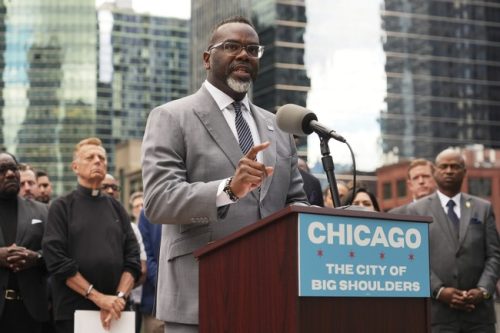A Manhattan psychotherapist says many patients show what he calls Trump Derangement Syndrome, and after speaking about it publicly he began receiving violent threats that highlight how toxic and polarized political debates have become.
A licensed therapist went on national television to describe a pattern he sees: patients whose distress centers almost entirely on President Trump. He doubled down in an opinion piece and on-air comments, calling the obsession a widespread pathology. The response included shocking, explicit threats directed at him.
The therapist, Jonathan Alpert, explained that in his practice a large share of clients bring up Trump within minutes of a session starting. He described symptoms like sleeplessness, trauma-like reactions, and an inability to enjoy normal life because news or social media trigger intense emotional responses. He called the condition profound and said it has become a defining pathology for many people today.
The fallout from his public remarks was immediate and brutal, and the volume of hostility surprised him. Messages arrived by text and email that were violent and obscene, aimed at silencing a clinician for diagnosing what he sees as a political-driven mental health pattern. That kind of response from the public and even from people in the mental health field signals a deeper issue beyond disagreement.
Alpert shared with Fox News Digital several messages he said he received via text and email over the past week.
“Eat s–t and die you racist fascist piece of s–t… f–king uneducated MAGA scumbag,” one message read.
“Pedophile protector,” another said.
“You’re a lowlife, worthless fraudulent piece of s–t pedophile who decent people hope is slaughtered, and the video is posted to YouTube,” a third message read.
“It’s been intense,” Alpert reacted to the messages, in an interview with Fox News Digital. “I expected disagreement, but I didn’t expect the level of hostility, especially from people in the mental health field.”
“What has stood out is the contradiction,” he added. “Many of the people who speak the most about empathy, tolerance and inclusion reacted with the least of it. That reversal tells us something about how emotionally charged politics has become.”
On air, host Harris Faulkner asked him to describe how he identifies the pattern in a clinical setting. He gave a clear, plain answer: fixation, trigger responses, and a level of preoccupation that interferes with functioning. He recounted a patient who could not enjoy a vacation because seeing the president on a device triggered distress.
Alpert stressed that these reactions are not healthy and that the president functions as a trigger for many patients rather than a typical subject of political concern. He estimated that roughly three-quarters of his caseload present with these features, and that hatred of Trump often surfaces almost immediately in sessions. Placing politics at the center of mental health care turns therapy into a reinforcement of grievance rather than a path to recovery.
Faulkner raised whether therapists themselves might be fueling the problem, suggesting that when clinicians allow personal bias to shape treatment they can worsen anxiety and depression. Alpert agreed, calling his own profession part of the problem and pointing to examples where practitioners advised cutting off family members or stoked political fears. That admission lands as a critique: when helpers become partisan, the helping breaks down.
He also talked about practical work in therapy: separating fact from fiction, correcting false beliefs, and urging patients out of social media echo chambers. He said part of therapy is educating patients and expanding the information they consume, so their view isn’t narrowed to a single, traumagenic narrative. That approach treats political obsession as a treatable pattern, not a badge of moral superiority.
The threats he received show how heated political disagreements can spill into intimidation and criminal behavior, even against mental health professionals. When clinicians are punished for diagnosing a politically tinged syndrome, the result is chilling for free speech and for honest clinical practice. The larger point here is not just about one therapist’s experience but about how polarized discourse has become unsafe and counterproductive.
This episode raises questions about the role of politics inside therapy, the obligations of clinicians to remain neutral, and the social costs when emotions trump facts. It also underscores a reality many conservatives point to: that certain institutions, including parts of the mental health field, can become echo chambers that amplify political hostility instead of calming it. Therapy should heal; when it divides, everyone is worse off.






